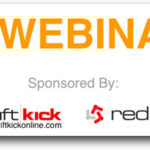Facebook debuted as a way for students to network and find “friends”. When asked, some professionals in Student Affairs are hesitant while others support its use as an innovative channel of communication – a place to directly connect with students and encourage their involvement on campus. In theory, it’s a great tool; however, quickly the channel can burn due to misuse. Think of your email inbox. How much is spam and how much is worthwhile information? Without creating a feasible plan of action, using Facebook fool heartedly can create another clogged drain of communication.
I believe Facebook, and other social networking sites, are great learning and networking tools. I encourage student groups to utilize this Forum of communication on a limited basis. To prevent burning the channel, I recommend a change in our approach to using Facebook as a tool to advertise our events. Overload is not the goal.
First, contact should be student to student when advertising events. As advisors, we hesitate to relinquish approval of advertisements; however, it is necessary to prevent attaching a stigma to the event. (Hopefully, we have enough trust in our programmers that they are aware of the message which needs to be relayed.) Plus, our students know the lingo better than we ever will!
Second, diversify the use of Facebook tools. Create an Event Invite for one event and a Group for another. Post Wall-to-Wall Announcements and send individual messages. One student should not receive all 4 forms of contact. We don’t need to create spam, just manage our delivery.
Third, use Facebook as a teaser. Provide limited information on the Groups(s) page, providing strong enticement for the user to check out a webpage or billboard, online calendar, or office. (Ask your students about all the ads for winning a free iPod or trips…don’t create pop-ups, just teasers.)
Next, be wary of buying ads within your network. Recognize that you are not the only “business” trying to get your message out there and have no recognized say in where your ad is placed. For example, your ad for a Leadership speaker may follow an ad for a “Kegger Karnival at Kyle’s” or “Free Wings at Big Bill’s”. What message are you sending to the recipient? The potential is there for your ad to be associated with free wings and kegs at the Leadership lecture, depending on how your user interprets the information.
Finally, create a profile for yourself. Encourage students to “friend” you. After all, you’re the one having the most fun on campus, right? (But don’t be discouraged if they don’t…they may think you’re “out to get them”). Also, use your photo album space to post pictures of your student leaders involved in campus events. We know actions speak louder than words, so speak up by showing what current students are doing on campus (especially if you have photos of your informal campus leaders…others will want to get their name out, too!)
These are simply recommendations. Even as I write students may be questioning the presence of advisors on Facebook and be hesitant to welcome advertising into their networking arena. So…step cautiously, but embrace Facebook for what it is…another way to connect to our students.




